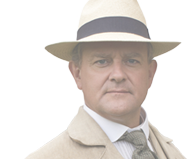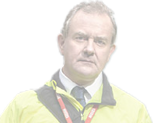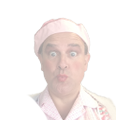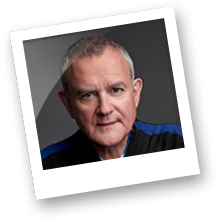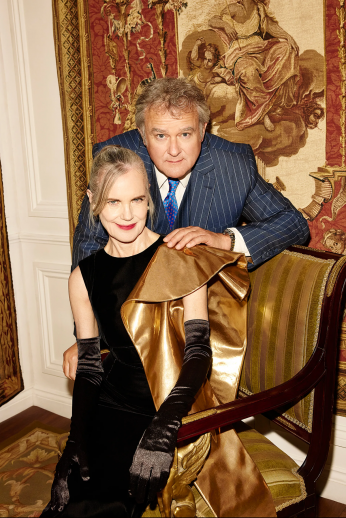Interview by Samantha Trenoweth for Women's Weekly AU
Hugh Bonneville (Robert Crawley, Earl of Grantham) and Elizabeth McGovern (Cora Crawley, Countess of Grantham) clasp hands and stroll through the green and pleasant grounds of Downton Abbey. English afternoon sunlight scatters golden shafts across the manicured lawns of Highclere Castle, where much of Downton Abbey was filmed.
After 15 years and as much trouble as any couple could be expected to withstand, they look at each other with the kind of relaxed affection that’s earned with time. And so the phenomenally successful period drama comes to a perfectly crafted conclusion with its third and final cinema release, Downton Abbey: The Grand Finale.
Created by Julian Fellowes, on the back of the immense success of his 2001 period film, Gosford Park (which also features Dame Maggie Smith), Downton Abbey began as a single BBC television series. It grew to become six seasons in as many years.
Downton Abbey went on to break viewing records and collect a trove of awards. Among them, multiple Emmy Awards, Screen Actors Guild Awards and Golden Globes. Finally, the series spawned three feature films. And as Hugh and Elizabeth tell The Weekly, Downton Abbey won a loyal audience that crossed generations and continents.
On the eve of the release of Downton Abbey: The Grand Finale, Elizabeth is in New York garnering rave reviews for her starring role in the Broadway production of Ava, about the life of American movie star and femme fatale, Ava Gardner. Hugh is in the UK, preparing to reprise his character, Ian Fletcher, in a satirical six-part BBC series, Twenty Twenty Six.
They join The Weekly over Zoom for a very Edwardian walk down memory lane.
Six seasons, three films. Why is Downton Abbey coming to an end now?
Elizabeth: Isn’t that enough? [And she laughs.]
It’s a bit of a cliché that casts and crews become a family, but you have been together for such a long time now. Can you share a little about that group dynamic?
Hugh: We genuinely have seen all shades – births, marriages, deaths – through the 14 or nearly 15 years … I think that if we’d not got on as a family, we wouldn’t have lasted for 52 episodes and three movies. There was a dynamic from the very first season. Would you agree, Elizabeth?
Elizabeth: I would. I think there’s something that you inherit from having spent so many years in each other’s company and gone through a kind of mutual life change with this group of people that you can never duplicate in any other situation. So on the first day of this last movie, there’s so much work already done that we can, in some ways, just fly together. There are so many things that we don’t have to think about and work on creating because they’re already so deeply in our bones. That’s an extraordinary opportunity that probably can only happen once in your life.
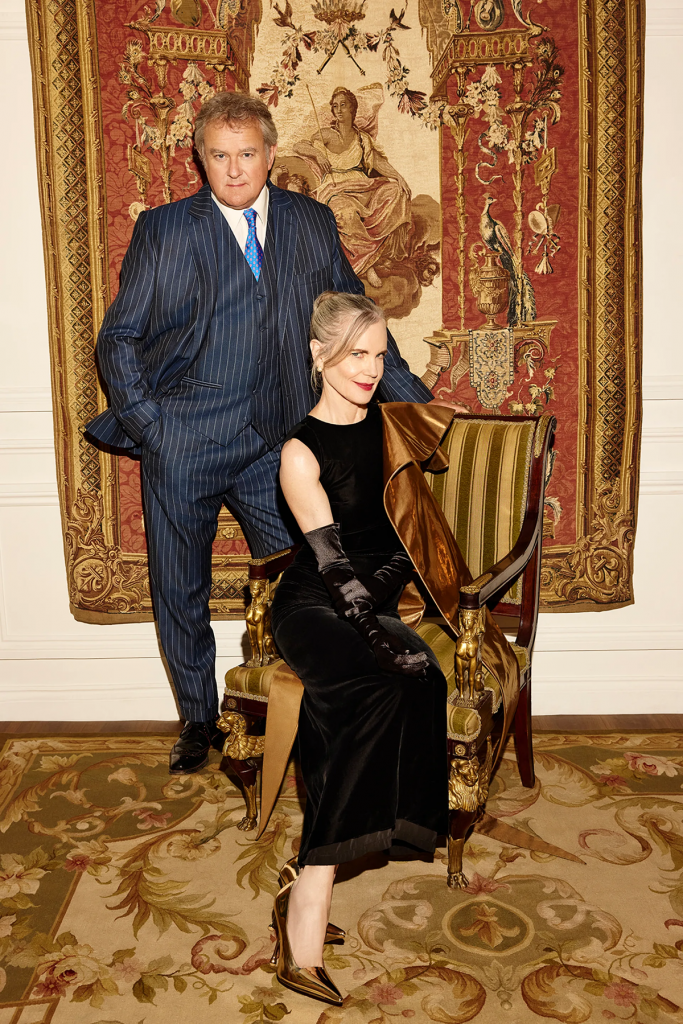
Hugh Bonneville and Elizabeth McGovern. Photo: Zoe McConnell for Focus Features
In this film, you are back at Downton Abbey without Dame Maggie Smith. She didn’t pass away until after production was finished, but even so, did it feel different that she wasn’t there on set with you?
Hugh: Her character had already passed away, but she’s very much referenced in the film. So that, of course, has an added poignancy. She passed away a few months after we finished, so of course, the film becomes a de facto tribute to her, and it’s a very fitting one, I think. In terms of her presence on the set, of course, she was missed … but she feels so present in the film without ever actually being there.
Elizabeth: I think everybody was so afraid of what it would be like without her, but she’s actually there. She was there on the set every single day with us. Her spirit lives on.
Do you have any favourite memories of Dame Maggie over those years?
Hugh: Suddenly, I had a snapshot in my head of her eating an ice cream. It was on the lawn in one of the hot summers – probably season one or two. I can remember, very fondly, standing outside on that lawn with her on a bright, sunny day. It was when there was an ash cloud from the Icelandic volcanic eruption, and there were no flights, so there were no air trails in the sky. And I remember her saying, “This is what it would’ve been like in the time Downton was set.”
I hadn’t even thought of it, but [it made me conscious of] stepping back into a moment where there was no modern technology, no aeroplanes.
Of course, I also remember her being scathingly witty on set. When she wanted, [she could] be intimidating as hell, but then she could be utterly generous and warm-hearted. She really was a truly three-dimensional person.
She was quite private. You didn’t really learn a lot about her outside her professional life.
Hugh: She certainly didn’t like publicity or having to do the marketing. And because she was Dame Maggie, she could get away with that. But she could be quite a shy person, actually. She loved her tennis. She loved going to Wimbledon every year. But I think she was most alive when she was amongst actors.
She was devoted to her grandchildren, I know that much. And, the girls [on set] really enjoyed her company. I think they often had lunch together between seasons, and they were always off in corners watching cat videos.
You know, we had the privilege of calling her a work colleague for all those years. She was much loved, but quite a private person.
That whole generation of female actors has changed what we see as a natural career trajectory for women. If anything, the roles they’ve played have become stronger and more interesting as they’ve grown older. Have they influenced the way you think about your career, Elizabeth?
Elizabeth: It was never my personal ambition to end up in England, but I feel so grateful that my life transpired to land me there. I think, for me, to have the opportunity to be in a culture that doesn’t castigate women simply for growing older has been such a lucky thing.
So yes, I think I’m being nurtured by a culture that supports women growing older, and that’s probably because of the habit of supporting the theatre, and women in the theatre, and the fact that in the theatre, women do stay interesting and dynamic. So that kind of naturally spills over into the culture of English cinema. And yes, I feel nourished by that, comforted by that and encouraged by that.
I think it’s the only way for society to go, really, because women, as they grow older, do have more to offer. And I think we ignore that at our peril as a culture… I talk to my daughters [Matilda, 32?, and Grace, 27?], and I know for a fact that they want to be able to feel they have some place to grow into that is okay, that’s not shameful. I think there’s a subtext in a lot of mainstream culture that it’s somehow shameful to be old, when you haven’t done anything wrong – you’ve just lived … The messaging is that to be young forever is the goal. But why?
Which Downton Abbey storylines have moved you or impacted you most across all these years?
Hugh: The one that just popped into my head was the death of Sybil. Robert is very impressed by Harley Street, as it were, and we must listen to the experts and all that, whereas Cora has other instincts. There’s a sort of trampling of other people’s ideas, or [a sense of] ‘stay in your box and I’ll do the talking,’ and it had potentially catastrophic results. I don’t think Robert caused the death of Sybil, but he certainly didn’t listen to alternative views.
What grew out of that was a very beautifully etched analysis of grief, really – of the family as a whole, of the household, but also of parents losing a child. And I think it was so beautifully navigated, particularly by Elizabeth.
Elizabeth: I agree with Hugh. I think the writing following the death of Sybil was extraordinary. That was a real opportunity for both of us. I loved the way Julian charted the quite different reactions to trauma that this couple had, and the process that brings them back together. I think that often the different reactions to death do divide couples. It all felt real, yet economical in the writing. I can’t think of a sequence in all those years that I’ve liked more than that one.
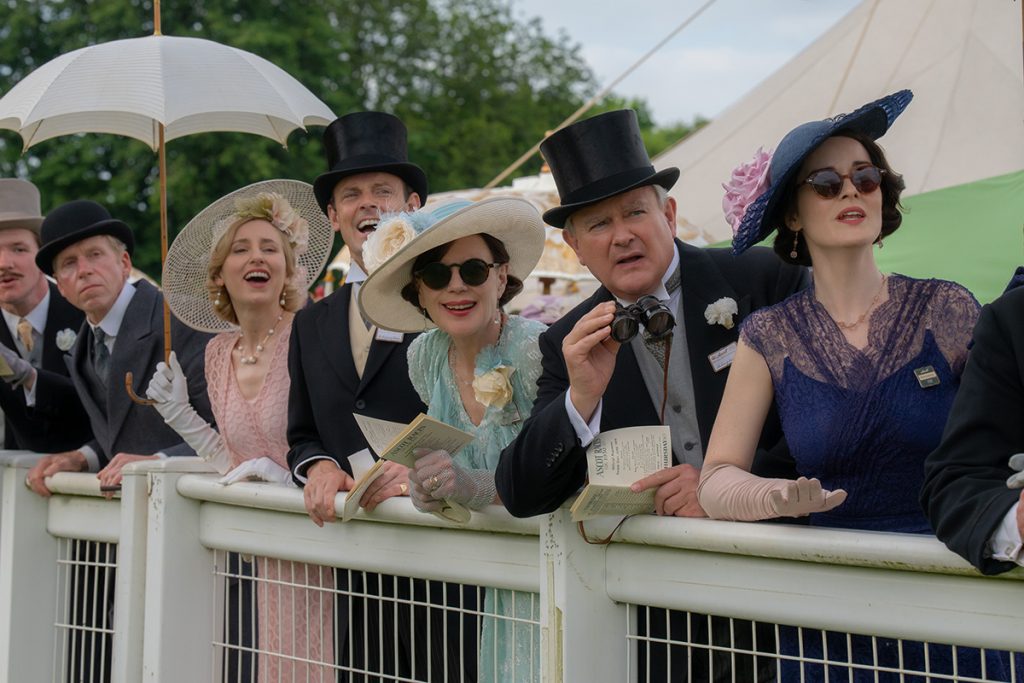
(L to R) Laura Carmichael stars as Lady Edith, Harry Hadden-Paton as Bertie Hexham, Elizabeth McGovern as Cora Grantham, Hugh Bonneville stars as Robert Grantham and Michelle Dockery as Lady Mary in DOWNTON ABBEY: The Grand Finale, a Focus Features release.
Credit: Rory Mulvey / © 2025 FOCUS FEATURES LLC
Can you talk a little bit about the way each of your characters has grown over this period of time, and also the way their love has grown?
Hugh: Well, the Robert of the first season was quite different to the one that developed subsequently. What drew me to [the character] originally was the fact that he was a conservative with a small C, but also a liberal. Liberal by instinct, but conservative by birth. I really liked that. He was always very fair-minded.
I sometimes used to accuse Julian, subsequently, of making Robert incredibly stupid. I found him sort of hilariously stubborn and a bit shortsighted, but Julian would tell me not to worry and then, by the end of the season, he actually seemed quite benign and likeable again. But, I think the writing in the final film was much more like the character that I recognised in that first season.
Elizabeth: When you think about it, all the women are smarter than the men.
Hugh: That’s very true.
Elizabeth: Which is just such a twist on the way things usually are. I really appreciate that.
Hugh: What I loved about the writing of our dynamic was – Elizabeth hit it on the head – that Robert was usually allowed to think, at some point or other, that he’d made some decision, where in fact he was the last person to come to the conclusion. And actually, the women in his family, particularly Cora and Mary, were streets ahead …
What I adored was that there may have been tensions through the story and slightly hilarious storylines to do with, I don’t know, chasing a maid, or an art historian … and they were fun, but underneath it, there was a sort of bedrock of utter dependability and deep affection between the two of them. And I think that really shines in the third movie, particularly.
Elizabeth, there’s a beautiful line in a song you wrote [she is also a singer and songwriter], which is about what your parents meant to you. It says: ‘All of the fish in all of the sea/All of the stars you can’t even see/That’s how many chances you gave me/To be all of the people I wanted to be.’ Do you think Lord and Lady Grantham were able to give that to their children? What kind of parents were they?
Elizabeth: Well, first of all, I’m actually lying on the floor in the dark, and [it’s a] joy to hear my song being quoted at me, so thank you so much for that. I’m getting up off the floor now.
Yes, I think they were those kinds of parents for their children. It might have not always been the first instinct, but ultimately, I think they were parents who supported their children and gave them those chances in every way. What do you think, Hugh?
Hugh: I would agree. I’m thinking particularly of Robert’s encouragement to Mary to go off and, you know, marry a cowboy and be adventurous and embrace life. I think he tacitly encouraged and believed in Edith striking out and becoming a journalist and having her own magazine. He adored the path that Sybil took bringing Tom Branson from being a chauffeur into the family. I think they were very good parents in that regard. Bearing in mind that the children would have spent a lot of time in the nursery with a nanny. I think, considering that, they turned out remarkably well-balanced.
Lord Grantham or Mr Brown [whom Hugh also plays in the Paddington films], which is the better dad?
Hugh: Oh God, I don’t know. It’s like asking you to choose between your favourite children. They’re both well-meaning, frustrated patriarchs.
And what kind of parents do you think you two have been in the real world?
Hugh: I’m not going to answer that one.
Elizabeth: I think he’s been an absolutely brilliant father. I think, that is why he is able to pull off a Robert that we all love so much in spite of his missteps … And you know, I have faults too, but I think you and I share that kind of a devotion to our kids. I’m not going to go into any more detail, but I know that’s true.
Elizabeth, you’ve said that Julian’s writing echoes, beginnings and endings, and that’s what brings its richness and depth. That seems even truer of this film. Is that turning of life’s seasons something you’re conscious of in your own life as well?
Elizabeth: Of course. Things are changing at such an increased speed now. I think, with the onset of technology, it feels like the process of change has been put on fast-forward. Maybe that’s one of the reasons why Downton is appealing. It takes you back to a time where you can contemplate the wheels of change turning more slowly and kind of come to terms with the phenomenon in your imagination … I think, one of the deeply resonant things about the show is that sense, underneath all the plotlines, of the wheels of time turning.
Do you have any particular memories of Downton fans?
Hugh: The interactions with fans continue to this day, either via the internet or through letters. And really, it’s about people who have felt connected to each other through the show. People who were often hundreds or thousands of miles away from each other would tune in at the same time and watch it together, and it became part of their family’s dialogue.
I got a letter, just yesterday, from yet another person saying how much the show had meant to them because they’d watched it with their now departed grandmother or grandfather, and how it became a sort of date night that crossed generations.
So yes, there have been funny occasions, and I’ve been invited to a few weddings – unfortunately, never with airline tickets in the envelope – but the moments that last are when you realise the impact our show had on people. You might be standing there, in a muddy field at seven in the morning, about to rehearse something, and you think, what on earth is the point of this? But then you realise that actually the show has touched millions of people in many significant ways … And then I feel very grateful to have been part of it.
Downton Abbey: The Grand Finale premieres in cinemas on September 11, 2025.
This feature originally appeared in the October 2025 issue of The Australian Women’s Weekly.



